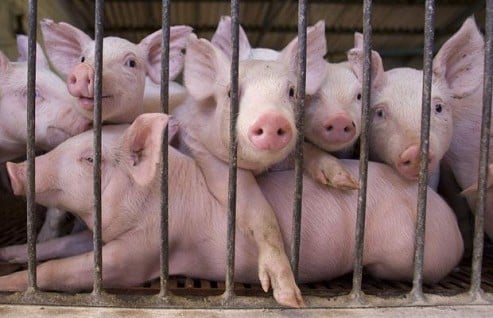For Many, These Are The Worst of Times

Yesterday’s column contended these are “the best of times” for most of the world’s population. Today’s column provides a persuasive counterargument.
READ: Are These the Best of Times or the Worst of Times?
My target question was centered entirely around humankind.
Regrettably, much of our collective and individual betterment has come at a severe cost to the other living creatures who share our planet and the environment which in some cases is stressed way beyond its capacity to sustain us much further. This pernicious bartering not only raises serious moral questions about what we’re doing to the rest of the world, but also spawns an entirely new series of potentially catastrophic problems that we must face right now, and in the years to come. Otherwise, it’s simple. We’ll become extinct.
Indeed, humanity is considerably safer, healthier, better-fed, and more enlightened than at any time in history. That claim does seem irrefutable. But what about those sharing our world — such as plants and animals? What about non-living things which are absolutely essential for human sustenance — like clean air and water, and reasonably stable climates and temperatures? In these areas, we appear to be failing miserably. Such failures are certain to produce dire consequences if they’re not addressed and corrected soon before we cross the point of no return.
Given this threat, are these really the best of times? Perhaps not.
Animals are the biggest losers amid human gains which have been achieved in both nutrition and science. Not only are more animals (and different kinds of animals) slaughtered than ever before, the inhumane conditions and treatment they live under during most of their lives are (in most cases) appalling. Let’s call this common practice what it really is — which is a form of torture. Land animals suffer the most since much of the world’s food supply is now comprised of pork, beef, and poultry. Pigs, cattle, and chickens which once grazed naturally and lived quiet lives on farms have become a romanticized thing of the past. Now, most of our meat products come from an industrialized assembly line of horrors which provide no standard of living for the animals unfortunate enough to be fodder for slaughterhouses.
It’s estimated there are now about 18 billion chickens in the world. That’s three chickens for each person on earth. There are also about one billion cattle, and perhaps 1.5 billion pigs (the vast majority raised and slaughtered in China). Not only is mass killing occurring on an unprecedented scale, but the way these animals are treated is also raising serious concerns based on moral objections to these practices, as well as perfectly rational worries that our animal food policies and practices may be making us all sicker in the long run.
Then, there are the seas that have been exploited now to the point where some species are increasingly rare, and still, others are becoming extinct. Industrialized fishing practices have raped the oceans from their ability to reproduce sea creatures fast enough to keep up with the never-ending demand. And so, small-scale fishermen which have been around since the dawn of humankind aren’t able to keep up with bigger producers equipped with better boats, the greater range at sea, and the best equipment able to catch fresh seafood. No doubt, these are the worst of times for the seas and all the creatures which live within the earth’s waters.
As for the environment, these aren’t just the worst of times. They’re now potentially cataclysmic times. Freshwater is becoming a scarce commodity in many parts of the world, especially in regions where it’s needed the most. The Rain Forest is gradually disappearing, which threatens up to 90 percent of the species living on earth, many of which are vital to the ecosystem and provide antibodies for the treatment of diseases. Everything from honey bees to monarch butterflies is now in danger. Upsetting this fragile balance comes with consequences, and we’re now only beginning to realize the very real dangers of what we’re doing to the planet. Such unbridled pursuits have become an assault for-profit and consumption, greed which could end up costing us our existence.
Fortunately, there’s some good news. Two relatively new developments in human history are the cause for genuine optimism.
First, many of us are increasingly empathetic towards animals and their miserable plight. Such empathy was non-existent just 50 years ago. While this movement remains small, animal rights awareness is steering many towards making healthier eating choices, including adopting vegan diets. As animal-based products become increasingly expensive to produce, and the consequences of ceaseless consumption of animals continue to make us sicker, we’re probably destined to gravitate towards greener food choices. That’s a good thing for everyone.
Second, many are now seeing that the status quo is utterly unsustainable. The environment simply cannot support the seemingly infinite exploitation reaped up by humankind. It’s already fighting back in the form of bizarre weather patterns, including droughts, floods, and plagues. That’s only the beginning. Wait until the honey bees are all gone. Since bees pollinate up to a third of our food supply, anticipate mass starvation. Then, imagine the political and social upheaval of such a catastrophe. It won’t be pretty. Who knows — the next generation might see wars and acts of terrorism launched to control the basics, like water and bees.
The warning signs are everywhere. They’re all around us. All we have to do is look, and then do something about it. Denying the obvious won’t make these looming problems go away.
Alas, we’re on a collision course. At some point, human life and those we share the earth with will reach a dangerous junction. Should we fail to find and then maintain a proper balance, humankind will eventually suffer the most. Yet oddly enough, with our demise, plants and animals will not only survive but thrive.
In the end, nature always wins.
Further Reading: Will We All Die if the Honey Bees Disappear?













Read the last two sentences of the article one more time. Those two sentences contain the frightening truth. We do not live in harmony with nature — we live in conflict with nature. Why?
Plant based diet diet solves many of the issues raised
Please Nolan, don’t go all Peta Nutz on us. Small farms & such are a great romantic notion, but large scale agribusiness is a big part of the reason less people are starving. Vegan diet is not a more healthy choice. Too many carbs, it can cause type 2 diabetes. (As my active, fit, 80 something year old father found out after being fooled by “the China Diet” vegan propaganda.) I knew that about native bees and other pollinators “european honey bee” is an import as the name suggests. I have about 31 acres, roughly 10 wooded, and plenty of native pollinators.